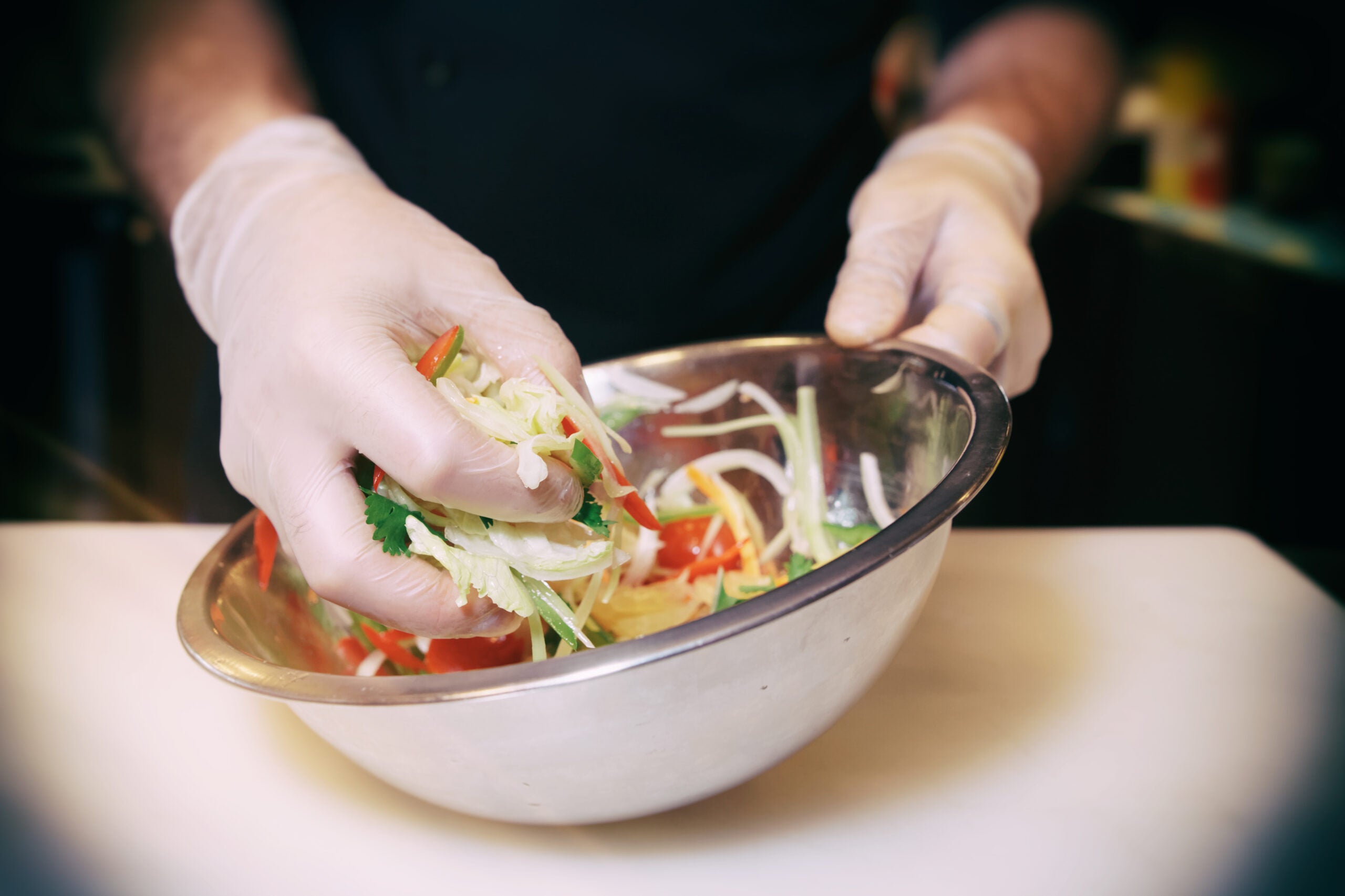Toxic Chemicals Leach their Way into our Food: Report Finds Hidden Harm
Today, we are exposed to the harms of phthalates through a variety of food service polyvinyl chloride (or PVC) gloves and food packaging materials, report found. This class of birth-defect-causing chemicals are known to leach into food upon contact. Good news is that a simple fix is available.

This page was published 6 years ago. Find the latest on Earthjustice’s work.
Phthalates — toxic chemicals used to keep plastics supple — disrupt our hormone systems and have been linked to reproductive, developmental and endocrine health problems, including deficits in child IQ and other learning disabilities. This class of chemicals is widely used in children’s toys and a broad variety of industrial and commercial applications, including the food industry. (Although certain phthalates were banned from use in children’s toys in 2017, the ban has been challenged by the chemical industry.)
A new report reveals exposure through these other avenues continues to pose risks, particularly to pregnant women and small children. According to government experts, up to 725,000 American women of childbearing age may be exposed each day to levels of phthalates that could harm a developing baby.
Today, we are exposed to phthalates through a variety of food service polyvinyl chloride (or PVC) gloves and food packaging materials. This class of chemicals are known to leach (or seep) into food, particularly into fatty foods like meats and cheeses, upon contact. The report found that one out of seven vinyl or PVC food service gloves tested contained toxic phthalates. The report sampled over 100 plastic food service gloves from 32 top glove distributors and 15 popular restaurant chains in the U.S. It found that one-third of the top glove distributors sold gloves with phthalates, and that one in seven (or 14%) of gloves tested contained phthalates.
No food handling material that leaches harmful chemicals into our food should ever be used.
The good news is that there are widely used alternatives that we can and should demand. For example, there are alternative practices such as frequently washing bare hands or using non-PVC gloves and food packaging materials. Several countries have taken action and have restricted or banned phthalates for use in various products. For example, in Europe and Japan, most phthalates can’t be used in plastics for gloves and food packaging materials that come in contact with fatty foods or infant food. Some popular food service industry chains have phased out phthalates by switching to readily available alternatives.
Unfortunately, other major chains continue to employ phthalates in materials that come into contact with food. And despite scientific evidence that has emerged in the last decade, the Food and Drug Administration (FDA) still allows the food industry to use phthalates in food contact materials.
That’s why we at Earthjustice and our allies have petitioned the FDA to ban these chemicals from all uses that might contaminate our food. The FDA has yet to respond to our petition so groups have to take legal action and take the agency to court. It’s time for the FDA to act.
In the meantime, food companies need not wait for the FDA and can act on their own. A simple and easy first step is to stop using gloves that contain any phthalates in any food contact applications. We along with our allies are urging McDonald’s and many more in the food industry to serve as market leaders and stop using PVC gloves and materials. It’s time to eliminate this risk of contaminating our food with phthalates.
Established in 2008, Earthjustice’s Northeast Office, located in New York City, is at the forefront of issues at the intersection of energy, environmental health, and social justice.